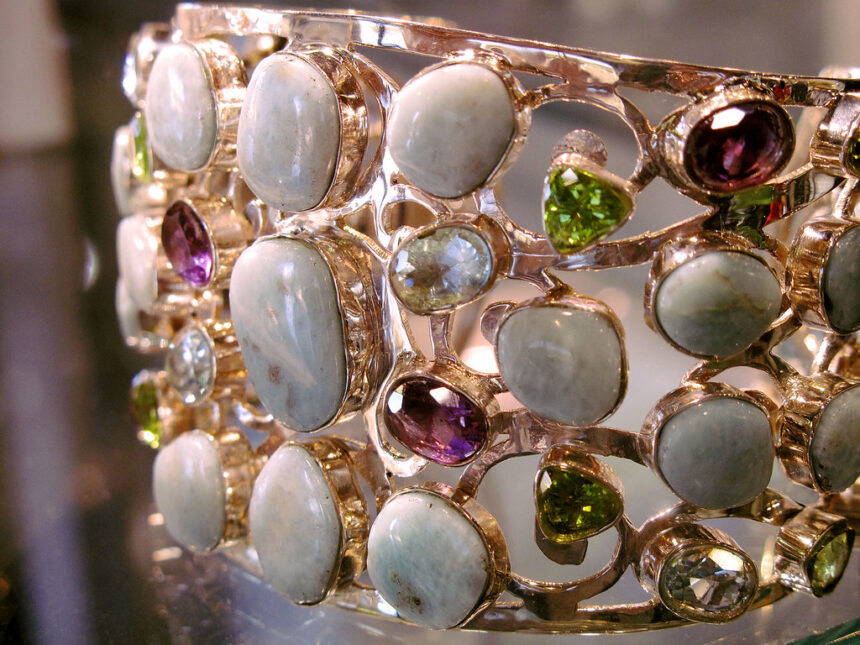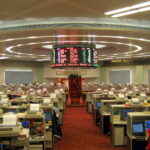Reuters reported that President Vladimir Putin suggested a joint exploration with US of Russia’s rare-earth metal deposits. He claims they are bigger than Ukraine’s. This would be part of a new economic agreement.
The US and Ukraine have negotiated an agreement on minerals that is expected to be finalized during the visit of Ukrainian President Volodymyr Zelenskiy, who will arrive in Washington this Friday.
I’d also like to purchase minerals from Russian soil. We’d like to buy rare earth if we can. Both Russia and Ukraine have excellent rare earth, as well,” US President Donald Trump said.
Trump also stated that both Russia and the US would benefit from the agreement.
Concerns have been raised worldwide about China’s dominant position in rare earth metals, which controls approximately 95% global production and supplies.
Metals like these are used in many industries including aerospace, defense and consumer electronics.
Other countries have been prompted by this near-monopoly to develop their own rare Earth metal resources in order to decrease their dependency on China.
Russia reserves
Russia has large reserves of rare-earth elements in its Kola Peninsula, and elsewhere.
The reserves have the potential for the country to reduce its dependence on China and diversify their global supply chains.
According to the US Geological Survey, Russia has the fifth largest reserves in rare earth metals. These are estimated at around 3.8 million tons.
Only China, Brazil and India have more reserves than Australia.
As of January 1, 2023, Russia is estimated to have 28.7 millions tons of rare earth metals.
This total includes 3.8 millions tons that are in development, or have been developed.
The industry is still hindered in its growth by the low demand at home and fierce competition from China.
By 2030, Russia hopes to have a 12% share of the world’s rare earth market and be one of its top five producers.
Russian rare earth metal mining
The sole Russian manufacturer of rare earth metals finished, Solikamsk Magnesium Plant was taken from the previous owners of 2022 on suspicion of privatization.
In 2023, the plant was transferred to Rosatom.
Rosatom is Russia’s monopoly nuclear energy company, and it has been expanding its high-tech sectors.
Rosatom’s Lovoozerskoye deposit provides loparite, containing rare earth elements, to the Solikamsk Plant.
Lovoozerskoye, located in Murmansk in north Russia is the only site for rare earths extraction in Russia.
Russian output of rare earths is around 2,600 tonnes, or about 1% global production.
The plant currently processes around 8,000 tonnes of concentrate per year.
Production Plans
Putin convened a rare earth meeting, saying that this sector is crucial to Russia’s development. This was less than two-hours after Trump had announced “major transactions in economic development with Russia” on the 24th of February.
Putin discussed rare earths, as well as other metals, at a recent conference, hosted by Mikhail Kovalchuk. Kovalchuk is a friend of many years and president of Russia’s leading research institute, the Kurchatov Institute.
Putin has expressed his regret at the loss of Soviet knowledge in the extraction and usage of rare minerals following the collapse the USSR.
The Kurchatov Institute, Rosatom and the President of Russia called on them to give priority restoration.
Putin, in November of this year, criticised Tomtor’s operator for the delays to development.
The operator was advised to raise funds or ask for assistance from other parties including the government.
Both Tomtor & Zashikhinskoye – key projects that are central to Russia’s strategy of increasing metals output – have experienced delays in their launch.
The sites in question are situated respectively in Yakutia, and Irkutsk region of Siberia.
Rosatom and Rostech are high-tech companies involved in industrial and defence sectors. They will be the main domestic consumers of rare earth metals.
The ICD published the following article: Russia and US talks on rare earths mining: Key details about Putin’s proposal.
This site is for entertainment only. Click here to read more






